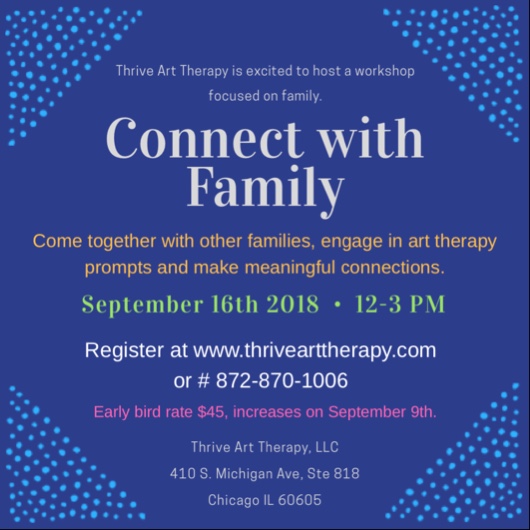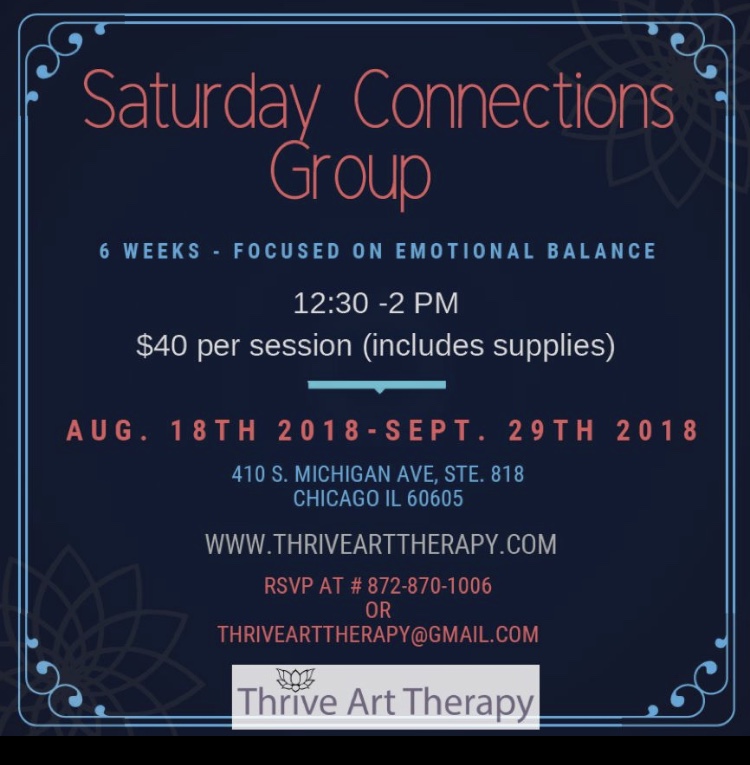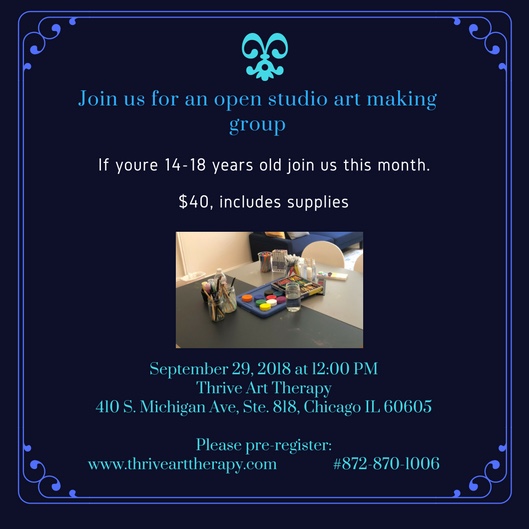Ahhhh, Chicago has begun to cool off and get us settling into hibernation mode with a decrease in sunlight. Seasons impact us in different ways. This PsychologyToday article highlights just 5 of the ways that your mental health can be impacted by this fall. If you find that the changing seasons are impacting your ability to live fully, consider counseling and art therapy services to help you adjust.
5 Ways the Change of Seasons Might Affect Your Mental Health
... and what you can do about it.
Posted Oct 20, 2017
Sometimes it can seem like it’s mandatory to like fall. Everyone is abuzz with talk of pumpkin spice lattes, sweater weather, and rain boots. If seasonal changes are difficult for you, you might feel alone. The truth is that for many people, the transition to fall is tough and the transition to winter is even tougher. Understanding why seasonal changes can be difficult can help you devise strategies to make this season a better season.
Seasonal Affective Disorder
Every year, about five percent of Americans experience a condition called seasonal affective disorder. Seasonal affective disorder (SAD) is seasonal depression. Though doctors think it might be related to changes in light levels outside, some people develop SAD during the summer months so its cause remains poorly understood. SAD gets better when the season changes but it can cause depression ranging from mild to debilitating, for months at a time.
The good news is that SAD is highly treatable, often with light therapy, outdoor activity, and sometimes with medication. If you find your mood shifting every year or if you’ve noticed that this fall you just can’t get into the season, then seasonal affective disorder could be the culprit.
Reactions to Daylight Savings Time
“Falling back” means getting an extra hour. It also means spending a lot more of the day in darkness. Research is increasingly uncovering ways that Daylight Savings Time affects physical and mental health. For parents, it can mean a disruption in their child’s routine that requires getting up earlier. For everyone, it means more daytime darkness. This is a risk factor for depression in people with seasonal affective disorder. It can also decrease access to vitamin D, a primary source of which is sunlight. Adequate vitamin D intake is key for many basic bodily processes, and vitamin D insufficiency has been linked to depression.
Inadequate Access to Light
Daylight Savings Time means spending less time in natural sunlight. Cold weather, particularly in northern regions, can compound this phenomenon. This increases the risk of depression, and can also alter circadian rhythms. Many people feel more tired and less hopeful during the winter months, even when they’re not depressed. For some, the lack of adequate daylight may alter their food intake and hunger level. So weight gain at the holidays could be due to hunger signals from your brain, not just the availability of too much pumpkin pie.
Holiday Traditions and Family Feuds
Commercials and Christmas stories act as if everyone has a loving, supportive family with whom to spend their holidays. Movies treat family feuds as hilarious, not heartbreaking. In reality, most people have some disputes with family members. For some, the holiday season means going home to abusive parents or siblings, or deciding whether to spend time with unkind in-laws.
If your family has died, holiday traditions can spur memories of holidays past, triggering grief, guilt, and a cascade of other painful emotions. But with so much pressure to be happy at the holidays, many people who struggle with the loss, disagreements, and family abuse feel ashamed that their holidays don’t look like the “perfect” ones they see on television.
article continues after advertisement
Pressure to Keep Up
For almost everyone, the transition to fall initiates a cascade of holidays: Rosh Hashanah, Halloween, Thanksgiving, Christmas, and more. Holidays are fun, but they're also work. The pressure to appear to be having fun while working to keep up with the neighbors, your family, and your friends can be overwhelming. There are decorations to buy, meals to make, presents to purchase, and endless events to attend. Skip out on anything, and you might feel guilty and like you’re not making the season sufficiently magical. But do it all and fade into exhaustion and emotional turmoil. It can feel like a no-win game.
Managing Stress as the Season Changes
Stress is not an inevitability of seasonal changes. It’s a product of the way many of us choose to live. This means it’s changeable. For people overwhelmed by seasonal affective disorder, painful stress, or family conflict, therapy can be a powerful ally. Medication may also help, particularly when minor stress turns into major depression. Some other strategies that can help you make it through:
Making a list of priorities for the season. Don’t give into pressure. Do the things you really enjoy and forget about the rest.
Getting access to plenty of natural light by spending some time outside or sitting under a sun lamp.
Maintaining a regular schedule, even when cold temperatures tempt you to sleep in.
Starting your own family traditions, particularly if you have a conflict with your family of origin.
Taking care of your body. Exercise at least 30 minutes a day, at least five days per week. Eat plenty of healthy foods and get enough sleep.
Even if every seasonal change in years past has been difficult for you, this one can be better. Take time to protect your mental health and watch the transition to autumn and winter become your favorite time of year.
References
References:
Penckofer, S., Kouba, J., Byrn, M., & Ferrans, C. E. (2010). Vitamin D and depression: Where is all the sunshine? Issues in Mental Health Nursing, 31(6), 385-393. doi:10.3109/01612840903437657
Seasonal depression. (2016, October 07). Retrieved from http://www.mentalhealthamerica.net/conditions/sad
Strickland, A. (2017, March 10). Daylight saving time can be bad for your health. Retrieved from http://www.cnn.com/2016/03/11/health/daylight-saving-time-health-effects/index.html









